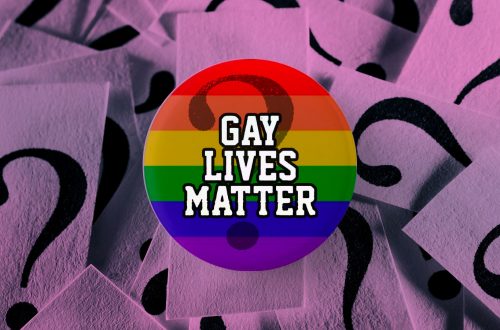A comment in Comment Is Free today by Charlie Condou, who plays “Marcus Dent” in the British soap opera Coronation Street”, has prompted me to say something about the issue of religious opt out. He said:
There remains the problem of the opt-out: individual churches can “opt out” of gay marriage on grounds of religious “conscience”. Does this mean that if we get married, we are going to have to shop our equal love around to various churches until we find a priest who is willing to allow it to be equal? That isn’t really equal, is it?
Well, actually it is.
Firstly, plenty of people – straight people – have to shop around for a priest. Most priests won’t marry just anyone unless they are satisfied various religious conditions are met. Even Prince Charles had to limit his options when he decided to marry Camilla, a divorcée.
But that isn’t the central point I wish to make. I am a secularist. I believe in the division of church and state. This implies a quid pro quo, as annoying as having to concede some things in order to gain other things often is. The church must keep out of state matters, and, within reason, the state must keep out of religious affairs. (By within reason I mean, the state can legitimately prevent a religious group burning witches or offering human sacrifices to their gods, or doing other things which cause harm to unwilling others.)
As I said in my previous post on the issue of homophobic businesses, we can’t – or rather, shouldn’t – force people against their consciences to associate with those they do not wish to. Even bigots have rights, and it seems to me that freedom of assembly and freedom of association are pretty fundamental rights. The fact of the matter is, if we accept that all are born equal we have to fight our urge to boss other people around simply because we don’t like what they think. Before we limit the freedom of our neighbours, we have to think long and hard about how their freedom to do x materially affects our ability to do y. I don’t need to illustrate this. I’m sure most people of good faith and common sense don’t struggle to think up examples.
Defending secularism implies that we stop the church imposing religiously-inspired dogmatic rules on society. But it also means respecting the autonomy of religions to set their own rules for participation in that religion. If a priest says the religion’s rules prevent him from baptising you, your human rights are not being violated any more than if a referee rules you off-side during a game of soccer. Those are the rules. If you feel it’s a silly rule, start a new club without it.
But let’s up the ante and make the issue more emotive. What if a church refused to have anything to do with Jews citing the “New Testament” book, John 5:16-18? What if a church refused to accept black members citing Genesis 4:14? (Yes, I know there are other “interpretations”).Well, tough. If those are their sincere and conscientious religious beliefs that’s all there is to it. The state should not interfere. Why? Well, firstly, even though they are, to my mind, bigots, they have a right to their beliefs as far as they’re not imposing them on anyone else. Secondly, it is doubtful that anyone Jewish or black, respectively, would want to join an antisemitic or racist church anyway; and thirdly, if their beliefs are indeed conscientious, sincere and religious, the state overriding them isn’t going to change them. Most likely they will just feel persecuted and become militant. But regardless, strong feelings should not alter the principle involved.
In any event, no decent person would want to have anything to do with a member of these churches anyway. Of course, churches that can’t or won’t comply with secular, state-mandated equality would be ineligible for public funds, and state contracts for the provision of services and similar perks which involve a ‘blending’ of the secular and the religious – if you’re prepared to countenance that at all. Public contracts and public money can legitimately be reserved for organisations that serve the whole public.
I do believe, by the way, that there is something rather obscene in the expectation that Jewish or gay taxpayers to contribute towards funding institutions that exclude them, or worse: preach hatred towards them. Should religious schools receive taxpayer funding while being allowed to discriminate? Or even, should religious institutions receive tax breaks? But that’s an argument for another day.
The State should neither be able to force a church to conduct a religious ceremony that is not in line with it’s beliefs, or prevent if from doing carrying out its rituals in line with its beliefs. . If you are a Catholic and your church doesn’t accept divorce, well, then your options are to join a church which does, or better still, to walk away from religion. But you don’t have the right to force Catholicism to accommodate you by force of law, because then, well, it’s not Catholicism it’s something else – crucially, something which has had its doctrine defined by the State. The very thing that secularism seeks to prevent.
There is no urgent social need to destroy religious institutions with illiberal doctrines. Secularism ensures that in this country, you are spoilt for choice. Indeed, there are plenty of liberal churches who are accepting of same-sex couples and are eager to solemnise their marriages. It was terribly unjust (under civil partnership legislation) that they were prevented from doing so, just as it is unjust to now demand that bigoted churches be forced to offer marriages against their will.
Mr Condou will just have to keep shopping, along with everyone else that doesn’t live up to the religious rules of some particular denomination. That is equality.
